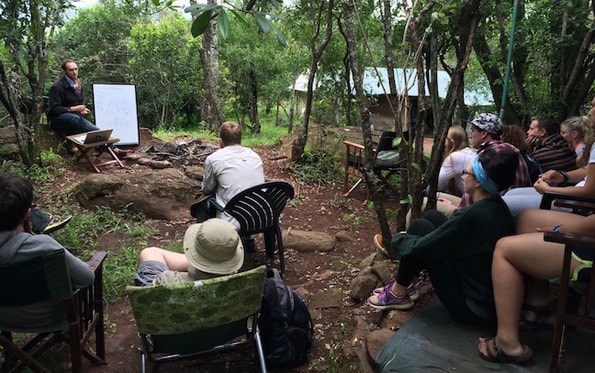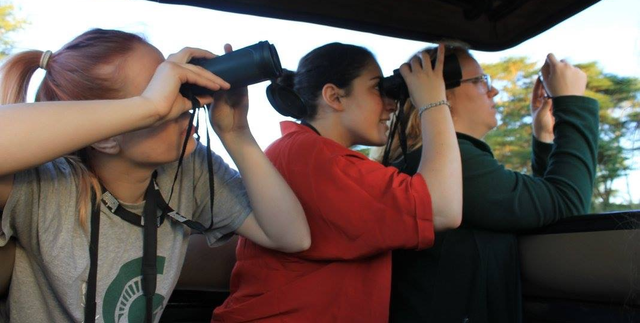Course Objectives
|
BEAM focuses on the behavior of African mammals and the ecological variables that shape the behavior exhibited by each resident species. During the program, students begin by identifying and becoming familiar with resident mammals. We then move on to making detailed observations of individuals and groups and monitoring their interactions. We discuss how the scientific method is applied to the study of behavioral ecology. Ultimately, students use a variety of techniques for systematic data collection to test hypotheses for why each species engages in particular types of behavior. The curriculum is designed to exploit the extraordinary richness and diversity of Kenya's mammalian fauna and the ease with which they can be observed in a savannah ecosystem. The best times of day for observing the behavior of African mammals are around dawn and dusk. As a result, we will spend two or three hours each morning and evening in our vehicles, observing and quantifying the behavior of various mammals and testing hypotheses about why these animals behave as they do. During the warmer hours around midday, and again each evening, course instructors will lecture students on selected topics germane to understanding the Serengeti-Mara ecosystem and the behavior of its animals. After developing an understanding of the behavioral biology of African mammals and the methods available for its study, students will be expected to develop and conduct independent projects answering specific questions about the behavior of one species, comparing the behavior of two different species, or testing an explanatory hypothesis in relation to behavior. Topics to be covered in this course include:
|
Study Abroad: Behavioral Ecology of African Mammals (BEAM)
IMPORTANT: BEAM will not be running in 2024 due to instructor shortages. This will be remedied in 2015. For more information, please email the lead instructor: Jana Woerner. |

